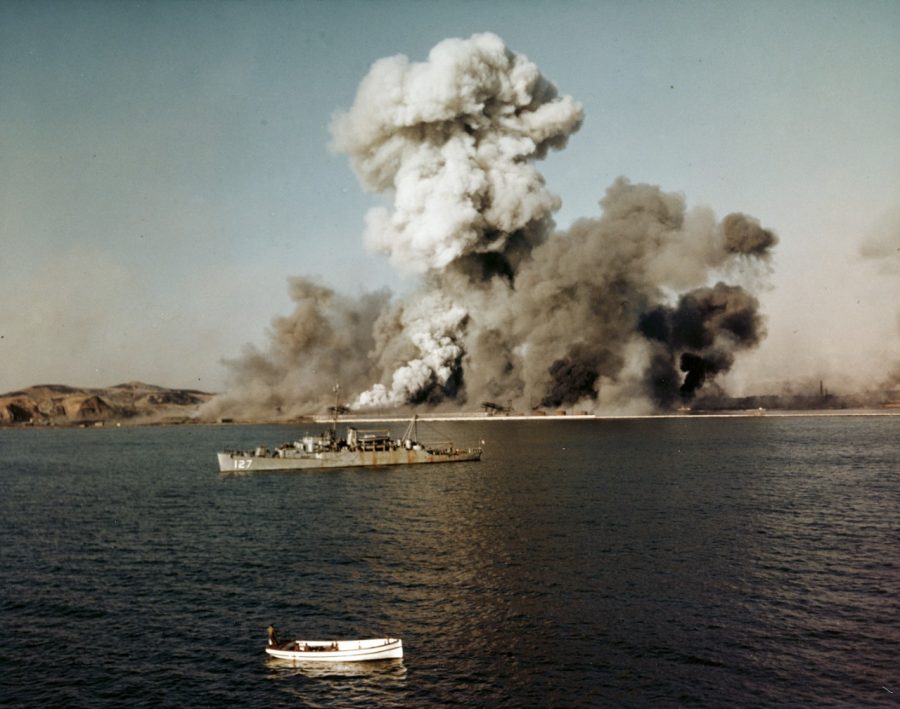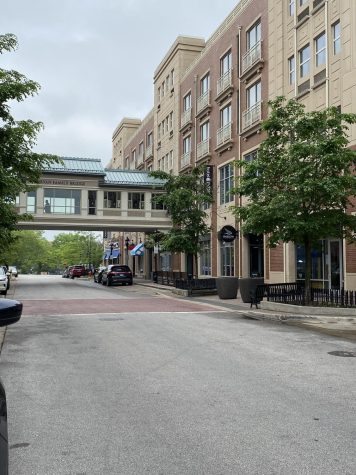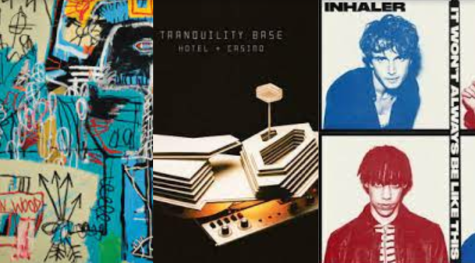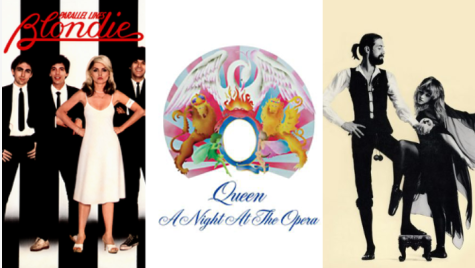Column: A Christmas miracle
Photo by United States National Archives
As the year slowly begins to come to a close, the descendants of more than 14,000 North Koreans will reflect on a timeless moment. Rescued from a North Korean port in December 1950 by a cramped cargo ship, their salvation aboard the “Ship of Miracles” — and the subsequent five-day voyage south — enabled them to begin a new life in a changed country. A couple weeks from now, they, along with South Korea’s current president, Moon Jae-in and every South Korean will remember their record-breaking Christmas miracle aboard the SS Meredith Victory.
Although it has been more than 70 years since the Meredith Victory sailed south, the humanitarian essence of its success stands out amid many which do not, dragged down by the tragedy of their failures. Despite the countless lives lost in any and all modern evacuation attempts, including that of the Meredith Victory, the ship’s outlier status should precisely be a cause for hope that any person in need of deliverance — whether from war, unemployment, the pandemic, or mental illness — desperately desires. The Meredith Victory teaches us a lesson that there will always be a person willing to reach out a hand when no one else is, and that said person may very well be ourselves.
Background: The Korean War broke out in June of 1950 between North and South Korea. Although initially losing almost 90% of its territory, South Korea soon bounced back thanks to a U.S.-led military intervention on behalf of the United Nations, turning the tide against North Korea. Desperate for help, North Korea called upon China, which directly fought and defeated South Korean-allied troops beginning in the autumn of 1950.
By Dec. 1950, the situation had deteriorated to the point where American Marines trapped in North Korea had to fight their way out of the famous inland Chosin Reservoir, while their comrades to the south abandoned their hard-won gains from the North. Thousands of refugees followed the Marines as they evacuated via the port of Hungnam on the northeastern side of the Korean peninsula, where U.S. Navy and Merchant Marine ships kept up a steady stream of materiel and personnel south to allied positions in Geoje Island at the opposite end of the country. To secure the safety of these ships, soldiers from the various U.N. countries (although mostly the U.S.and South Korea) fought back the Chinese and North Koreans in a rearguard action.
The Ship of Miracles: The SS Meredith Victory was one of the last ships still in the port of Hungnam by the time American strategists and officers overseeing the evacuation had deemed it complete. On Dec. 23, as more and more armaments were loaded onto the merchant marine ship, thousands of refugees clamored just outside of the pier where it was docked, begging to be let aboard.
Heeding a desperate plea from a Korean sailor, Captain Leonard LaRue of the Meredith Victory made the fateful decision to let as many refugees as possible onto the ship before his superiors destroyed the harbor with timed explosives to prevent its use to the enemy. Climbing up on rope ladders and boarding through the rear cargo ramp of the ship, 14,000 starving and ragged Koreans stormed in, where they crammed together in tight spaces or huddled together, shivering, on the deck.
Yet there were thousands more who could not board, left behind when dynamite hidden all across the city of Hungnam detonated, sealing their fate. Others had lost contact with their loved ones earlier, when they stayed behind with relatives due to their inability to travel. There had been hope that they would meet again, that the evacuation would only be a couple of weeks.
Instead, it has lasted nearly 70 years.
The rescued: Despite the conditions on the ship, as well as the mines and other wartime dangers in its southward path, none of the passengers or crew aboard the ship died. Rather, five new babies were born during the voyage, nicknamed “Kimchi 1-5” by American sailors. Docking at a refugee camp on Geoje Island after five days, the 14,000 plus five who disembarked from the “Ship of Miracles” finally, for the first time in their lives, had a chance to start anew and succeed in a country far freer than its northern counterpart. A new opportunity had been given to them, and those that had seized it would be able to live lives better than the ones they had left behind.
As thousands of people around the world celebrate their winter holidays and carry out traditions, the descendants of the 14,000 and all others who succeeded in seeking refuge from war will turn their eyes northward. They will remember those lost on that day in the icy port of Hungnam, and of the courageous decision taken by the crew to allow those that survived to board. In remembrance of this “Christmas Miracle,” they hope for another.
They hope that the loved ones they left behind will have survived, and can meet with their families face-to-face, in full flesh. They hope that for those still trapped in Kabul, Caracas and Beirut, there will be a way out, an airplane or a ship that ferries them out of danger and into safety, just as the Meredith Victory did.
As the semester winds down, and winter break approaches, let us join them in their hopes for that second Christmas Miracle. Let us hope that for the migrants making the perilous journey across the Mediterranean or the English Channel, and for the thousands of North Koreans completely denied any semblance of human dignity, there will be a door that opens for them to walk through to a better life. Perhaps, if we hope, even one man may be inspired to act in a sufficient manner that will make this year’s Christmas — in the midst of everything we have endured — a little bit brighter.
For further reading, see this BBC article describing the Evacuation of Hungnam, as well a press release from Oct. on the possibility of Captain Leonard LaRue being made a saint from the U.S. Conference of Catholic Bishops.











